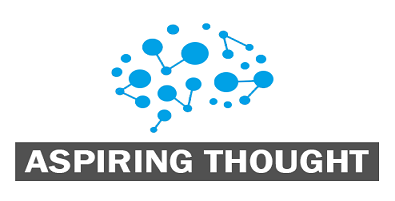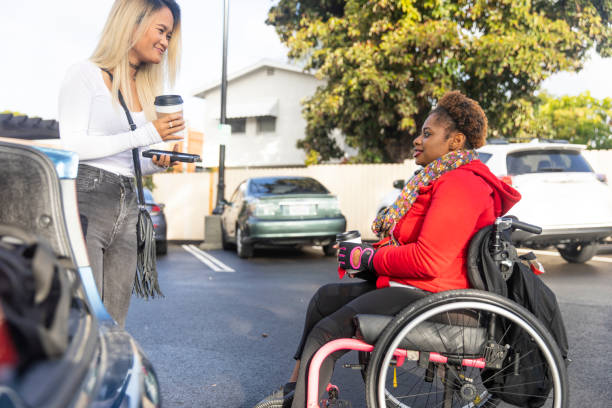nAcquired Brain Injuries (ABIs) are life-changing events that can strike anyone, anywhere, anytime. These injuries can turn lives upside down instantly, whether caused by traumatic incidents like accidents or non-traumatic events such as strokes and medical conditions. In this blog about disability services in Melbourne for individuals with ABIs, we look into the world of these remarkable survivors and the required support systems that are an aid on their path to recovery and hardiness.
Acquired brain injuries encompass a diverse range of conditions, each with its own physical, cognitive, emotional, and social challenges. Some of them suddenly lose their mobility while others may enter a perplexing maze of cognitive impairments. The consequences of ABIs are faced by all, the individual, their families, friends, and communities. These injuries can shatter dreams, disrupt careers, and strain relationships, making the need for specialised care and support paramount.
In this blog, we venture deep into the heart of services by an NDIS Provider in Melbourne dedicated to those who have experienced ABIs. Let’s explore the profound impact of ABIs on individuals and their loved ones, the challenges faced by survivors and service providers, and the dynamic landscape of care and rehabilitation. We hope this blog does justice to the remarkable strength of the ABI survivors and the unwavering commitment of disability services to enhance their lives.
Understanding Acquired Brain Injuries
Before delving into services by NDIS Providers in Melbourne, it is essential to understand the nature of Acquired Brain Injuries. ABIs encompass a broad spectrum of conditions resulting from brain damage after birth. They can be categorised into two main types –
Traumatic Brain Injuries (TBIs)
TBIs occur due to external forces, such as accidents, falls, or sports-related injuries. These injuries can lead to a range of symptoms, including memory deficits, impaired motor skills, and altered cognitive functioning.
Non-Traumatic Brain Injuries
Non-traumatic brain injuries can be equally devastating, often caused by strokes, tumours, infections, or medical conditions like aneurysms. They may result in a wide array of physical, cognitive, and emotional impairments.
The Impact of ABIs on Individuals and Families
ABIs can profoundly impact the lives of individuals and their families. The consequences of these injuries may include –
- Physical Impairments: ABIs can lead to mobility issues, paralysis, and challenges in performing everyday tasks like dressing, eating, and bathing.
- Cognitive Challenges: individuals face memory problems, difficulties with concentration, and impaired problem-solving skills which significantly impact their ability to work, study, or manage daily responsibilities.
- Emotional and Behavioral Changes: After ABIs people may experience mood swings, depression, anxiety, and personality changes, which makes maintaining social relationships and balancing emotional well-being very challenging .
- Social Isolation: The above combination of physical and cognitive challenges can lead to the patients’ social isolation as they may find it difficult to engage in their favourite leisure or social activities.
The Need for Disability Services
Given the complex and diverse challenges for individuals with ABIs, an NDIS Provider in Melbourne plays a pivotal role in their recovery and overall well-being. Their services encompass a wide range of support mechanisms designed to address the unique needs of ABI survivors. Let’s explore some key aspects of disability services for people with ABIs –
- Rehabilitation Programs: Rehabilitation programs are essential for helping ABI survivors regain lost skills and adapt to their new circumstances. These programs often include physical, occupational, and speech therapy to improve mobility, enhance daily living skills, and restore communication abilities.
- Psychological Support: Many ABI survivors experience emotional and behavioural changes. Psychologists and counsellors are a vital support for the individuals in coping with these changes, managing stress levels, and improving their mental health.
- Cognitive Rehabilitation: this completely focuses on improving memory, attention, problem-solving skills, along with overall cognitive function. With all these the individuals regain independence in their daily lives.
- Social Integration: Disability services aim to reintegrate individuals with ABIs into society. This includes support for participating in community activities, returning to work or school, and rebuilding social relationships.
- Assistive Technology: Technological advancements have paved the way for innovative solutions such as adaptive software, communication devices, and mobility aids, which greatly assist ABI survivors in regaining independence.
- Caregiver Support: Family members and caregivers play a crucial role in rehabilitation. Disability services often provide training and resources to help them provide the best possible care and support.
Challenges Faced by Disability Services
While disability services in Melbourne are invaluable, they are not without challenges. Some of the common hurdles include –
- Limited Access: Access to disability services can be limited, especially in rural or underserved areas. This creates disparities in care and support for ABI survivors.
- Funding and Resources: Adequate funding and resources are essential for providing comprehensive disability services. Budget constraints can lead to a shortage of trained professionals and necessary equipment.
- Stigma and Awareness: Stigma surrounding brain injuries can hinder access to services and support. Raising awareness about ABIs and reducing stigma is an ongoing challenge.
- Long-Term Care: Many ABI survivors require lifelong support, and long-term planning for such care is often lacking. Ensuring sustained care and assistance for these individuals is a significant challenge.
Divinity is Serving Others in Need
As a dedicated service provider for individuals with Acquired Brain Injuries (ABIs), Nexa Care’s mission remains resolute. We have witnessed firsthand ABI survivors’ incredible resilience and determination on their path to recovery. Our commitment to delivering personalised care plans, harnessing technological advancements, and fostering supportive communities is unwavering. Despite the challenges we face, from limited resources to the stigma surrounding ABIs, we remain steadfast in improving the quality of life for those we serve. Our goal is not merely assistance but empowerment, ensuring that every ABI survivor can reclaim their independence and find hope, purpose, and fulfilment in their journey forward.



